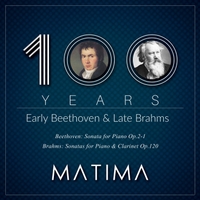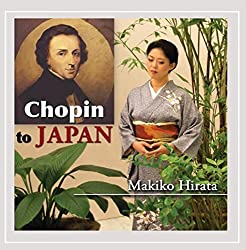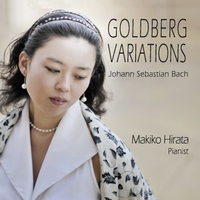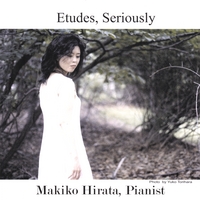
100 Years: Early Beethoven & Late Brahms by Matima
Award-winning doctors of music present three of the greatest classical masterpieces as reflections of transforming world and musical aesthetics, but also of timelessness of music as a universal expression of humanity.
Chopin to Japan, released in July 2014: The two giants with perhaps the greatest influence on the 20th C music and beyond, Debussy (1862-1918) and Scriabin (1872-1915), both admired Chopin (1810-49). They started their compositions for solo piano with pieces like Nocturnes and Mazurkas, clearly imitating Chopin who established these genres for solo piano. It did not take them long to continue what Chopin had initiated and to establish their entirely new and ground breaking musical languages. These two composers directly influenced two Japanese composers. One of them, Kósçak Yamada (1886-1965), heard “Poem” by Scriabin in Moscow in 1913, and went onto write pieces like “Homage to Scriabin” and “Poem”, along with the first Symphonies composed by a Japanese composer, and many of the very first operas in Japanese.

The other, Taru Takemitsu (1930-1996), called Debussy his “composition mentor”. Piano recital “Chopin to Japan” explores these lineages, and reconfirms the notion that music is a universal language.

Goldberg Variations, released in November, 2011: “Aria with Diverse Variations for Harpsichord with Two Manuals” (1741) became known as the “Goldberg Variations” because Bach’s first biographer Forkel wrote in 1802 that one Count Keyserling had commissioned the piece for his keyboardist, Golberg, to play during the Count’s insomniac nights. The name has stuck although the story is questionable for several reasons. By custom, the piece would have been dedicated to Keyserling on the title page, which it is not; Goldberg was only 14 at the time; and this composition makes an unlikely lullaby. The piece is by far the largest and the most sublime keyboard work of the 18th century.

Its tightly-knit counterpoint, deep and diverse variations, perfectly executed structure and, above all, magnificent beauty make it a superhuman masterpiece.

Etudes, Seriously, released in 2007: The album explores the development of “etudes as a genre from Bach’s Prelude and Fugue to Prokofiev’s Op. 2. Also included in the album are: Beethoven Sonata Op. 54, selections from Chopin, Liszt, Debussy Etudes, and Rachmaninoff Etude-Tableaux.